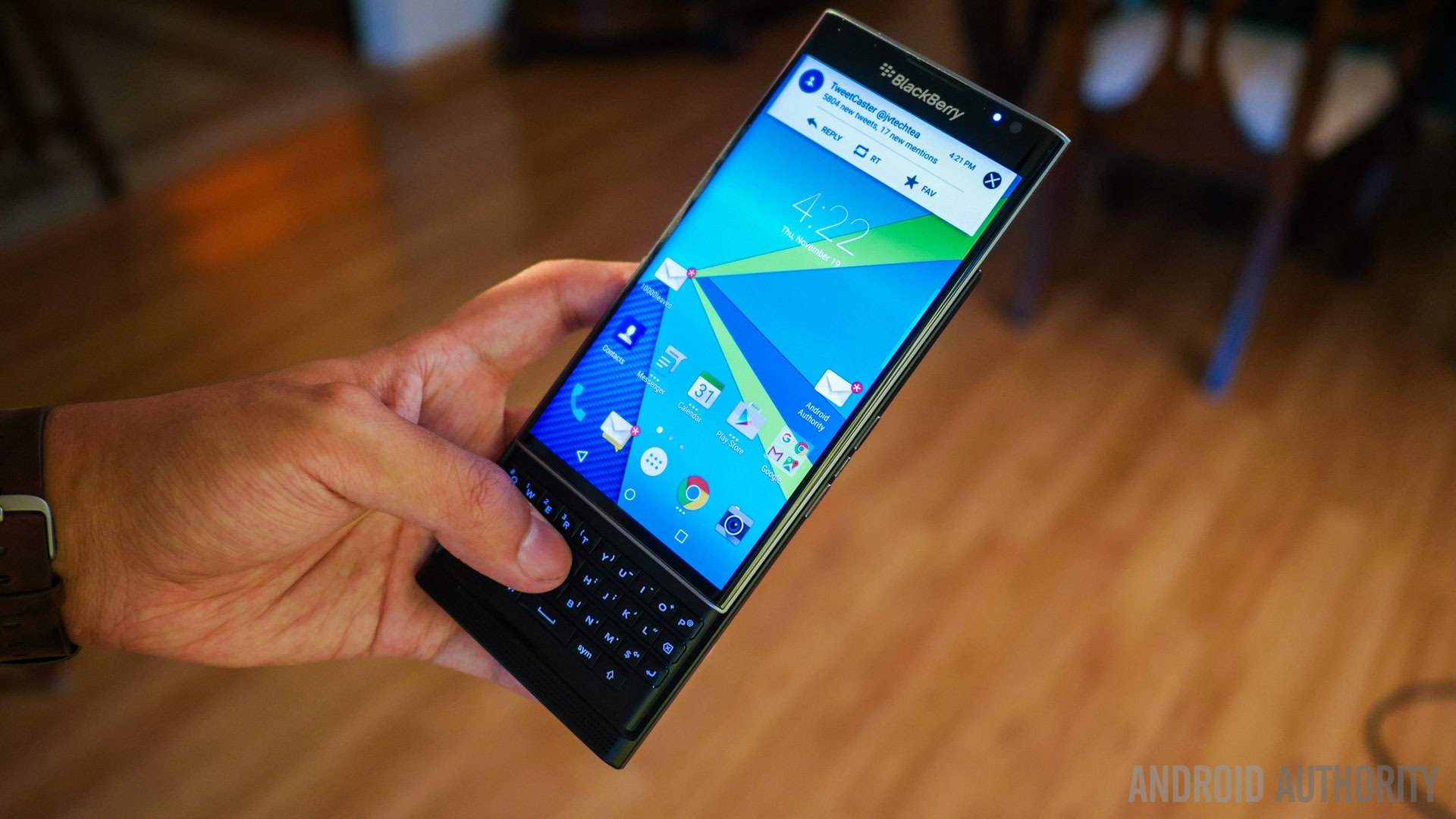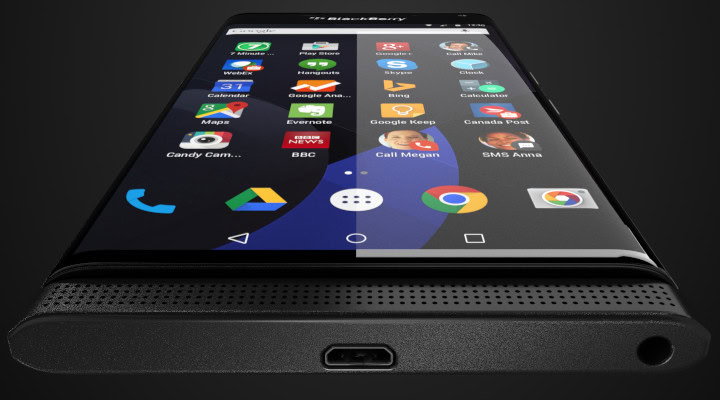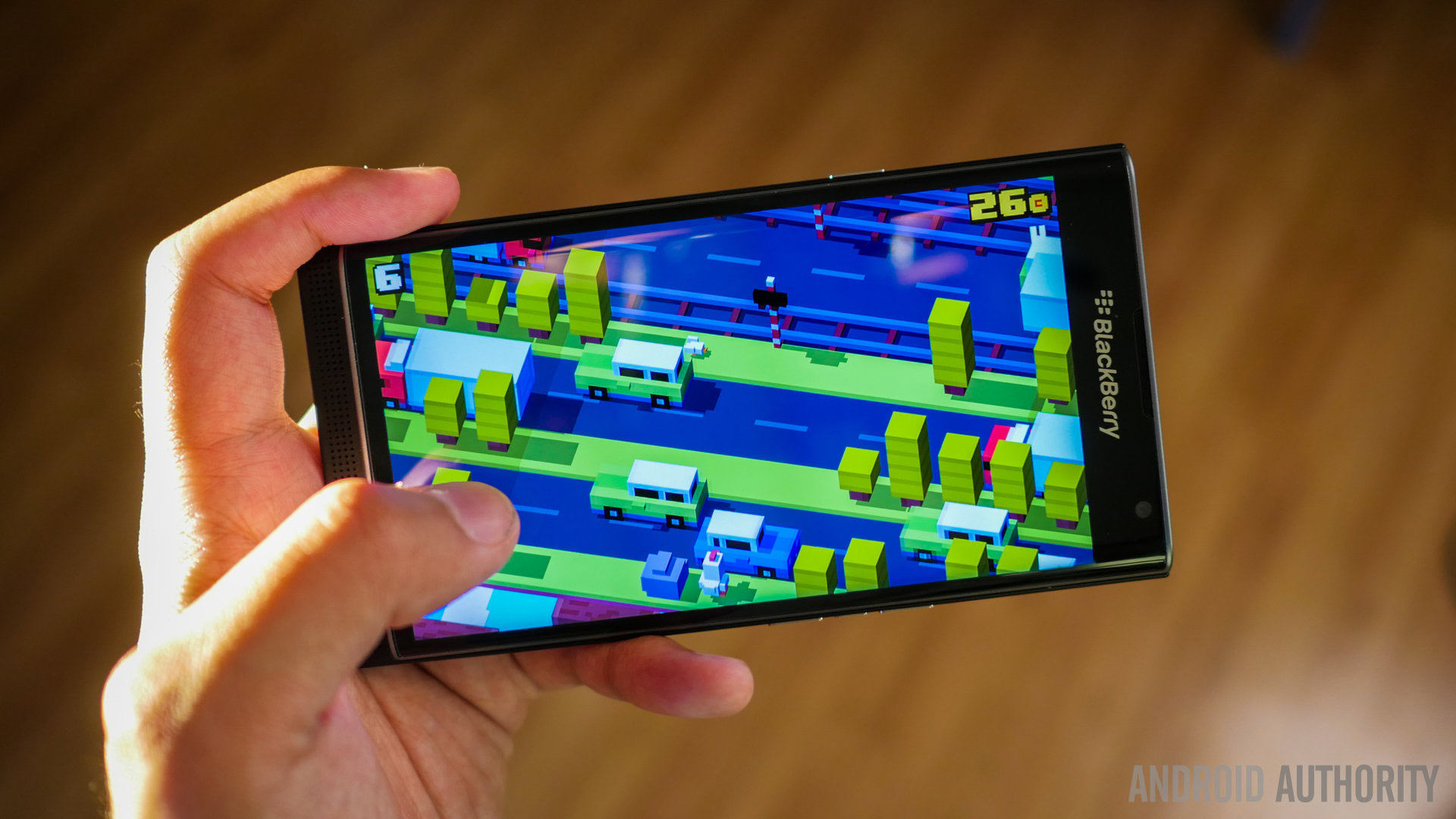Affiliate links on Android Authority may earn us a commission. Learn more.
50 shades of Red: The Priv was supposed to put the Berry back in the Black
Published onApril 7, 2016

For the company once known as Research In Motion (RIM), the end of 2015 was supposed to be the start of something substantial, special, and by many accounts, spectacular. Leaked for months on end, the device once known as the Venice and officially branded the Priv, was supposed to be the smartphone that saved BlackBerry’s sinking ship. The Canadian company – while not in as many words – announced the termination of new BB10-based hardware products so that all attention could be allocated to Android.
Last week, on Friday April 1st, BlackBerry announced that it had sold 600,000 phones in its most recently completed fiscal quarter. This figure corresponds to all phone sales for reference, not exclusively sales of the Priv. For reference, Wall Street had anticipated a figure around the ballpark of 850,000 units. For comparison, BlackBerry had sold 700,000 units in the previous quarter. This means that not only did the Priv fail to ignite sales, but it didn’t even boost them to the already low levels of mid-2015.
This piece will look at the Priv – both what it got right and wrong – as well as a recent report about BackBerry possibly moving to software-only later this year, and then try and reach some semblance of an outlook for what the future might hold.
The Priv’s peril

Everything seemed super
The months and months leading up to the launch of the BlackBerry Priv were filled with rumors and speculation, as well as an ever-growing undeniability that the device being leaked in all the pictures and reports was indeed using a display that looked exactly like Samsung’s Galaxy S6 Edge. In those days, the phone was referred to as the BlackBerry Venice, a name that some feel would have served the product better.
The hype continued to build throughout the summer as the unthinkable seemed more and more tangible: BlackBerry was going to make an Android device, and it was going to make an Android Device: not just some throwaway toy, but a top-of-the-line slider that made use of one the company’s famous physical keyboards.

The launch
The release of the Priv was met with arguably two large problems: when it hit stores last November, it was sold by an extremely small number of carriers in select countries. It took several months to hit other major US carriers, and didn’t even hit Verizon until March.
Beyond that was the sizable price tag, in excess of $650, that made it an extremely questionably proposition for anyone who was skeptical of the success it might achieve, not to mention anyone also considering a top-tier offering by Samsung. To a lesser extent, there were also reports of bugs and other quirks with the skinned Android Lollipop software.
Indeed when the phone launched in India earlier this year, comments from around the internet – including those on Android Authority’s post – all indicated shock at how expensive the product was being priced. In an almost ironic fashion, John Chen, BlackBerry’s CEO, had on at least one occasion, acknowledged the price tag was quite high and signified that it would come down by the time Mobile World Congress hit in 2016 due to the new competition in the market. Fittingly enough, just yesterday BlackBerry announced a price cut.
Indeed the number of devices sold became somewhat of a speculative spectacle due to BlackBerry’s own refusal to talk numbers, and the very real evidence present on the Google Play Store that indicated all major BlackBerry Priv first party apps were in fact showing a surprisingly small download and installation tally.
Critical mass

If there was any doubt that last week’s earnings report was a somber wake-up-call to investors and fans alike, a CNBC post from April 1st indicates that things are seemingly quite dire. Specifically:
Chen said in September 2015 that he needed one year to make the device profitable. He told CNBC’s “Squawk on the Street” that he intends to keep that promise and believes it will get to profitability.“If by September, I couldn’t find a way to get there, then I need to seriously consider being a software company only,” said Chen on Friday.The company’s stock was down nearly 5 percent Friday.
The report goes on to indicate that, according to CEO Chen, the company’s cost-cutting efforts have actually lowered the number of devices that need to be sold to break even. Whereas previous estimates had indicated 5 million annual sales of products retailing for $300 per unit were required, the new number is just 3 million devices.
Nonetheless, the numbers speak volumes: Whereas the Canadian OEM made $28 million in profit at this point last year, excluding write-offs, it posted a loss of $18 million for the same quarter this year. With such a strong state of dire straights, it’s no wonder the company laid off 200 employees back in February.
Overall outlook

Just a few months ago, reports were indicating that BlackBerry would plan to launch at least one new Android device this year. Given the poor sales of the company’s first offering, it is possible that even this modest target is being reconsidered. To some extent the crisis facing BlackBerry is not unlike that which Sony is also experiencing: carriers are not so eager to take a risk on products that aren’t proven to have strong sales.
In other ways the Priv situation is not unlike that which LG experienced with the G4 last year: lots of hype and theoretical sales potential but ultimately a product that failed to thrive in the marketplace. Of course with LG’s case, the Korean operation has now released its G5 and gets to try again. BlackBerry, meanwhile, has yet to even announce a follow-up product and thus it is now selling hardware that is already considered old.
On the whole, it’s probable that a majority – if not a near totality – of Android users could care less about what happens to BlackBerry. The company arguably had years upon years to make the switch to Google’s mobile OS platform yet waited until it was arguably too late to try something out. There has been a general animosity towards BlackBerry among some segments of the internet over the years: it is clear that some people are not only eager for the company to go bankrupt, but actively cheering on the idea no less.
Wrap up
While the Priv may have been a good first try by BlackBerry to explore the Android marketplace, it’s one that may have ultimately come several years too late. Putting aside the curved AMOLED display, there is very little “draw” to the phone other than its slide-out keyboard, yet even that has paradoxically been criticized for being redundant given the software keyboard, as well as hard to use due to the cramped nature.
Even were the phone to go free on contract, it would be unlikely to move any major number of units, all the more so given that the Galaxy S7 – a phone which some feel rivals even Apple’s iPhone – is dominating the marketplace right now. And with LG having just released its G5 and HTCjust days away from announcing its new and redesigned hardware, how many people are going to be hyped up at getting a product released almost half a year ago and which hasn’t even done well enough to convince them of long-term support down the line.